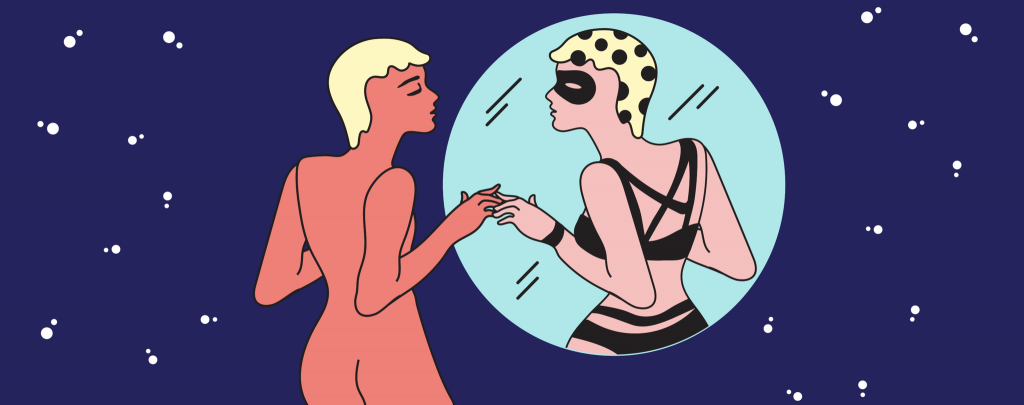By Hayley Van Allen
After coming out to my friends and family as bisexual, it took me a year–and my first long-term relationship with a girl–to realize that I was gay. And yet, I didn’t feel comfortable describing myself as a lesbian for another year and a half.
This isn’t an uncommon experience. Many women (and woman-aligned people) who are exclusively attracted to other woman (and woman-aligned people) still feel uncomfortable using the term “lesbian” to describe themselves.
Before proceeding, it is important to address my use of the terms woman and woman-aligned. For the sake of convenience, when referring to woman and woman-aligned people throughout this piece, I will simply use the terms woman, girl, etc.. For the purposes of this article, I am using the term “woman-aligned” to reference those who feel some sort of connection to womanhood and women’s experiences. Keeping these differences in identity in mind, any time I refer to “women” moving forward, it should be inferred that woman-aligned nonbinary people are also included.
My own relationship with the terms I used to describe my sexuality and gender have fluctuated over the years and is something I am still figuring out. Part of reaching the point where I felt comfortable enough to call myself a lesbian was by reflecting on exactly how and why the word made me feel so uneasy in the first place. Once I realized that I was gay–and could identify as a person not attracted to men–it felt incredibly freeing to refer to myself as a gay person. I embraced gay jokes as a part of my personality, covered my room in rainbow flags, and talked about it all the time. At the same time, I avoided ever calling myself a lesbian and felt extremely uncomfortable whenever I was referred to as such. The word felt dirty and wrong to me.
In our society, the lesbian label is surrounded by so much stigma that many people consider it a curse word, something you should never say around children. This is mostly due to the blatant sexualization of lesbians. It’s a word that has become synonymous with being dirty or pornographic or predatory. Women who love women (wlw) have been called lesbian with disgust, like it is a terrible and wrong thing to be. Lesbian is now a porn category directed at straight, cis men. Straight women are told to fear lesbians because lesbians who “infiltrate” women-only spaces might prey on them. The term has so many negative connotations, some people won’t even write–much less say–the word, even when writing or talking about lesbians.
When I first began identifying as gay, I never felt comfortable calling myself a lesbian. I could only hear all the negative connotations with the word every time I,or someone else, used it. It took a while before I could refer to myself as a lesbian because of this. What helped me overcome that discomfort was to question why the word felt bad in the first place. Once I realized that there was nothing wrong with being a lesbian–that straight people had just twisted around the word to sound dirty and sexual–I was able to begin the process of personally reclaiming it.
I still feel some discomfort when other people call me a lesbian, especially people I’m not close to, but using the identifier has gotten easier. Saying it out loud gets easier every time. I remind myself that the word “lesbian” originated from Lesbos because that’s where Sappho, the greek poet who wrote about loving women, is from. What a beautiful history to have for a word, to know that you are named after an artist who expressed herself through her art and was so famous for it that the world knows her name and remembers her.
I am slowly taking back the word so it can be a positive and beautiful thing once again for me. Being a lesbian is not bad or pornographic or wrong; it’s a beautiful identity that took overcoming many harmful internalizations. Coming to terms with being a lesbian has been one of the most freeing experiences of my life and I’m not going to let people diminish that by making it sound dirty.



